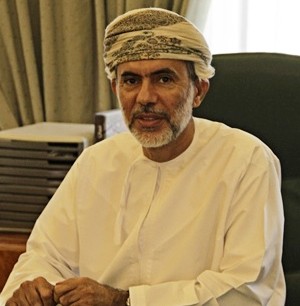Last year, the Sultanate of Oman announced that the Capital Market Authority is preparing the draft law for a mandatory health insurance rollout in the country. The move stemmed from a decision made by the council of ministers to create sustained and consistent institutional mechanisms across the country’s health insurance landscape.
The new medical policy — the Compulsory Private Health Insurance System, also known as Dhamani — is designed to provide a basic insurance coverage for expats, their families, and tourists in the Sultanate. Sheikh Abdullah bin Salim Al Salmi, CEO of Capital Market Authority, told International Finance, “Dhamani is seen as a means to an end, rather than being an end in its own right. Dhamani is a multi-payer system, where employers or sponsors pay for the health insurance of their employees or sponsored-individuals.”
Currently, the Capital Market Authority is working with relevant institutions to implement the council of ministers’ decision to introduce Dhamani in gradual phases. In practice, each phase will be introduced only after ensuring that the previous phase was successfully implemented.
“Dhamani was designed with the intention to facilitate proper health insurance for employees and visitors. Inclusion of families and dependents of expatriate workers in Oman is subject to contractual obligations between employers (or sponsors) and employees,” he said.
In recent years, the insurance industry in Oman has witnessed tremendous growth. The health insurance industry for the first time achieved a bigger market share in terms of total insurance premiums compared to the motor business, local media reported. Last year, the industry accounted for 33 percent of the total premiums, with a significant growth rate of 30.5 percent between the period 2011 and 2018.
So far, the industry’s robust growth has been attributed to two reasons. The public is fully aware of the importance of health insurance, and another reason is that employers in the private sector are willing to provide medical covers to all workers in an attempt to attract and retain talent.
Now the Oman government’s plan to implement Dhamani simply highlights the possibility of a much favourable health insurance environment for Omani citizens and reflects upon the scope for the industry’s growth in the coming years. “Upon examining the presence and extent of coverage of the private healthcare facilities, it has become evident that we need to encourage the establishment of more healthcare providers within stipulated patient’s rights and quality care standards,” Sheikh Al Salmi explained. Currently, the number of employees in the private sector covered by health insurance is 450,000, and the number is expected to reach above two million with Dhamani in place by the end of this year.

Standard & Poor’s GCC Insurance Outlook 2019 report found that Oman’s insurance market will grow up to 10 percent this year. The forecast in part depends on Dhamani and its phased rollout which is aimed at incrementally increasing the utilisation of medical services at private healthcare facilities.
Investment banking advisory firm Alpen Capital in its GCC Healthcare Industry report said that the healthcare spending in Oman is expected to reach $4.9 billion in 2022. The healthcare expenditure on outpatient and inpatient services is predicted to grow at an annualised average rate of 10 percent to $1.5 billion and $2.3 billion. The bed requirement is expected to grow at a CAGR of 3.2 percent through 2022. This means that there will be a demand for more than 1,100 new beds in order to have a capacity of 7,937 beds.
It seems that Dhamani has come just in time to ease the anticipated burden on Oman’s private healthcare system. Although Oman’s healthcare industry is small, it has outshone many of its peer countries because of firm political will and dedicated workforce planning. The country adopts a free market economy approach, where investment is key to driving competition and market growth.
“The Capital Market Authority believes that providing the right incentive would attract more investments in the insurance industry. For example, mandating the health insurance and a streamlined (electronic) claims and payment system, would provide the right incentives,” Sheikh Al Salmi explained.
The Standard and Poor’s report observed that intimidating factors such as cut-throat competition, high operating and regulatory costs, volatile investment returns, and strict accounting standards would have negative side effects on insurers’ earnings in 2019. In order to stabilise these factors, the government “would require establishing the rules for a fair competition and equal playing field as manifested by strict monitoring to minimise market manipulation,” Sheikh Al Salmi said. In saying so, Sheikh Al Salmi is pointing to the fact that the health insurance industry is in need of increased provisions amid stringent standards and regulations to lower the weight on insurers’ earnings.
In fact, “The prime benefit of Dhamani is the provision of effective and consistent means to ensure compliance with employers’ duties vis-à-vis health and medical care as outlined in the labour law,” he added. This approach is more forward-looking for insurers in Oman who are eager to secure their position in the overcrowded medical insurance market.
 With Dhamani, insurers will have an opportunity to tap into Oman’s extensive market potential to unlock premium growth. “Dhamani will help converting hidden operational costs to a single cost that can be budgeted and monitored systematically. It is hoped that such cost will go down in time, contingent on claim ratio,” Sheikh Al Salmi explained. The Capital Market Authority is also looking to bundle the care components of other insurance products such as life and repatriation, as well as workers’ injuries and compensation. In general, this will facilitate better risk management and reduce costs for insurance companies.
With Dhamani, insurers will have an opportunity to tap into Oman’s extensive market potential to unlock premium growth. “Dhamani will help converting hidden operational costs to a single cost that can be budgeted and monitored systematically. It is hoped that such cost will go down in time, contingent on claim ratio,” Sheikh Al Salmi explained. The Capital Market Authority is also looking to bundle the care components of other insurance products such as life and repatriation, as well as workers’ injuries and compensation. In general, this will facilitate better risk management and reduce costs for insurance companies.
Dhamani might end up hurting the insurance industry and the private sector if the pricing is not appropriate. For that reason, Sheikh Al Salmi said, “The minimum required basic health coverage necessitated careful selection of coverage and development of network criteria, bearing in mind employers’ cost tolerance range.”
Dhamani is already claiming victory in small measures by stretching out its benefits to expats and Omani citizens in the private sector as well. Sheikh Al Salmi went on to note that there will be an even distribution of healthcare services for Omani citizens. The scheme is anticipated to boost capacity in the healthcare system by reducing the current traffic and easing the burden on healthcare facilities, which in turn will lead to the possibility of extending medical services to other segments as well.
In the case of expats, Dhamani will provide them with smooth access to healthcare services through the adoption of simplified procedures. “This is guaranteed by the adopted policy of no compromise on quality of care or delivery of employer’s duty of care, as well as continuous monitoring and refinement, especially as the Capital Market Authority has already identified roles and duties for insurance companies, and healthcare providers,” Sheikh Al Salmi concluded.

